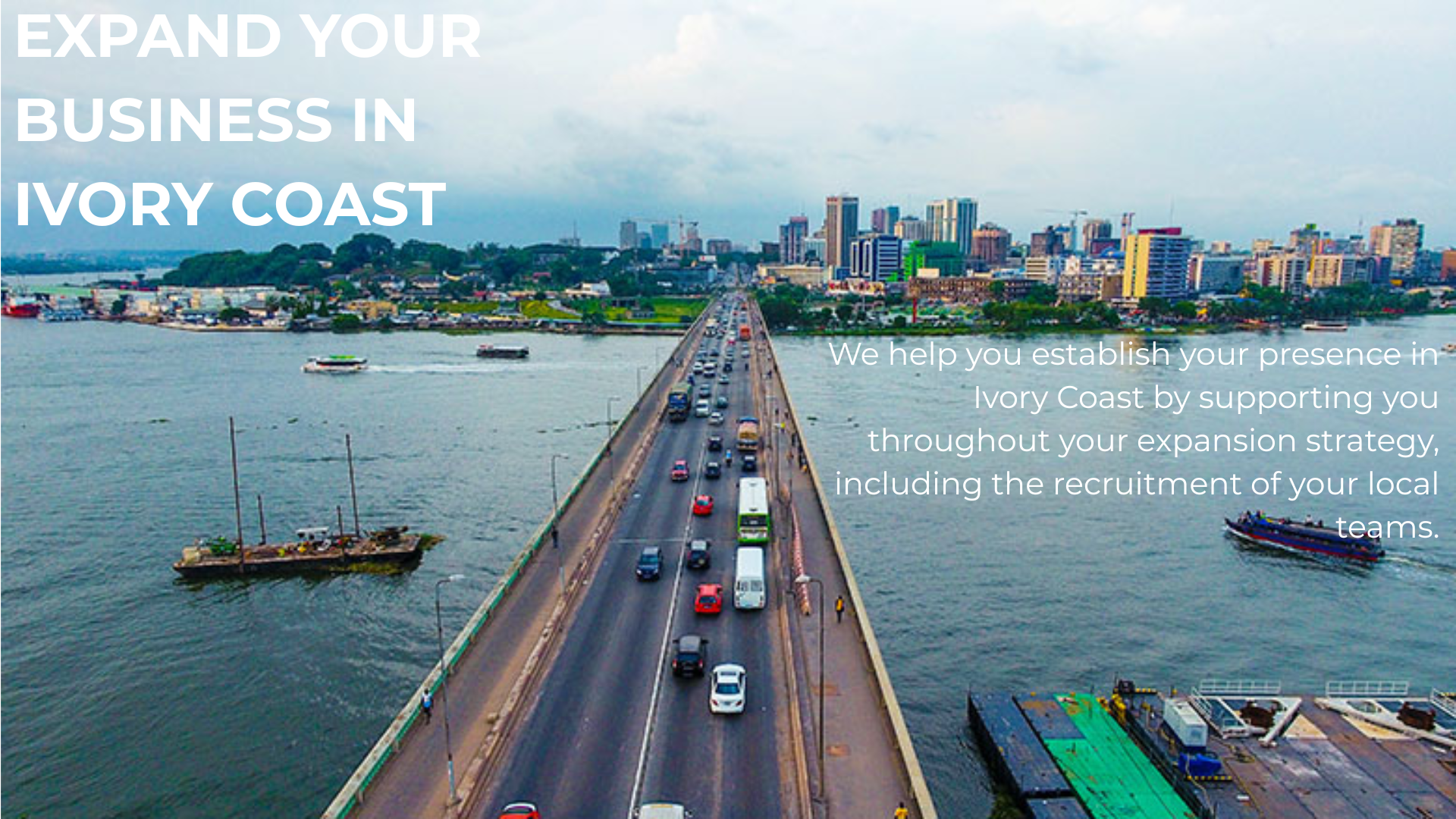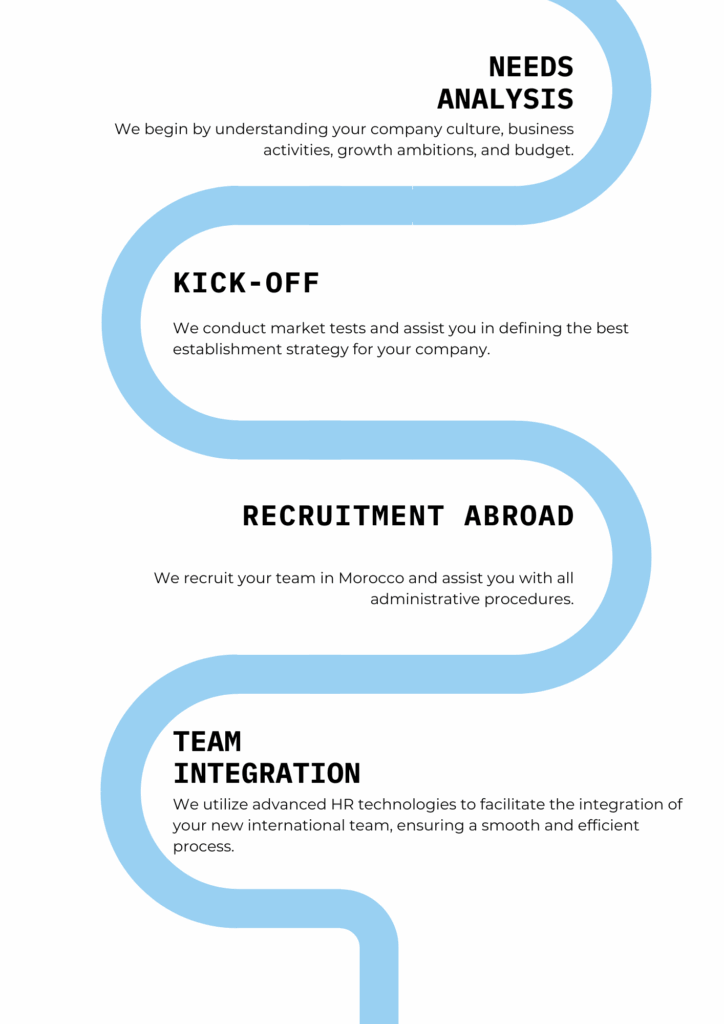
HOW WE RECRUIT IN IVORY COAST

RECRUITMENT IN IVORY COAST
Why expand to Ivory Coast ?
Ivory Coast is emerging as a key destination for companies looking to invest or establish themselves in West Africa. With political stability restored for several years, a favorable business climate, and sustained annual growth, the country attracts investors through promising economic prospects. Located at the heart of the region, the capital city Abidjan serves as a major logistical and financial hub, well connected to the entire West African Economic and Monetary Union (WAEMU) and international markets.
Ivorian infrastructure—including roads, ports, airports, and digital networks—has benefited from significant investments, providing a modern and dynamic operational environment. Furthermore, Ivory Coast has a young workforce, predominantly French-speaking and steadily improving: public and private universities are reforming to align training programs with market needs, focusing on key sectors such as digital technologies, agro-industry, construction, and mining.
Finally, the Ivorian government actively promotes investment through incentive policies such as tax breaks, special economic zones, integrated agro-industrial projects, and simplified administrative procedures. These measures increase the country’s attractiveness for foreign investors seeking a lasting foothold in an economy undergoing deep transformation towards local processing and modernization.
Key information about working in Ivory Coast
Minimum Wage (SMIG)
Legal working hours
Types of contracts
Paid leave
The minimum wage is set at 75,000 FCFA per month, which is approximately €114.34 based on the current fixed exchange rate.
The legal working time is 40 hours per week in the non-agricultural private sector. Typically, these hours are spread over 5 to 6 working days, with a maximum of 8 hours per day.
Ivorian labor law recognizes several contract types: permanent contracts (CDI), fixed-term contracts (CDD), as well as seasonal or part-time contracts. Temporary employment is also regulated, primarily through authorized placement agencies. All contracts must be written and filed with the Labor Inspectorate.
Employees with at least 12 months of service with the same employer are entitled to a minimum of 2 paid working days of leave per month worked, totaling 24 paid working days annually.
FAQs
Recruiting in Ivory Coast requires drafting a written contract detailing the position, remuneration, duration, working hours, and conditions. The employer must register the employee with social security and retirement bodies, notably the CNPS. The contract must also be filed with the Labor Inspectorate to ensure compliance with applicable regulations. For foreign employees, a work permit issued by the relevant authorities is mandatory before starting employment.
Ivory Coast’s economy still heavily relies on agriculture and agro-industry, which are essential to GDP and drivers of growing local transformation. Cocoa and cashew nuts are the main pillars, while the agro-food industry seeks further development around processed products. The country has also increased investments in renewable energy, especially solar and hydroelectric power, as part of its energy transition and diversification efforts. The mining sector, notably gold and offshore oil extraction, is rapidly expanding due to new discoveries. Construction, logistics, telecommunications, and financial services, particularly in Abidjan, are also booming sectors.
The probation period in Ivory Coast varies according to professional status: typically one to two months for employees and supervisors, and up to three months for executives, usually renewable once. These durations must be clearly stated in the employment contract and comply with the collective agreements applicable to the specific sector.
